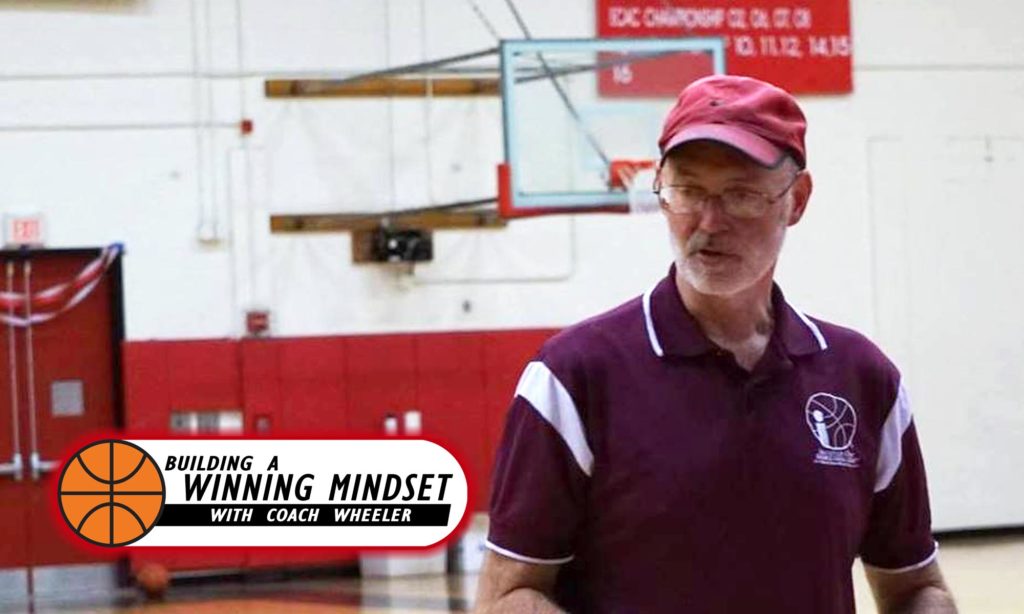
Mistakes are often seen as setbacks, failures, or embarrassments, but for those with a winning mindset, they are stepping stones to success. They are lessons wrapped in challenges, teaching us what doesn’t work and pushing us closer to what does.
Mistakes are an inevitable part of life, especially when striving for greatness, and learning to recognize, move past, and grow from them is crucial to building a winning mindset. Let’s explore how to turn mistakes—both chronic and one-time—into powerful tools for improvement.
Recognizing Mistakes, Especially Chronic Ones
The first step to learning from mistakes is recognizing them. This might sound simple, but it can be surprisingly difficult, especially when dealing with habitual or chronic errors. These are the mistakes we make repeatedly, often without realizing it, because they are tied to ingrained patterns of thought or behavior.
Spotting Chronic Mistakes
- Self-Reflection: Take time to regularly reflect on your actions, decisions, and results. Journaling or maintaining a simple log of daily experiences can help you identify patterns of behavior that lead to repeated errors.
- Feedback from Others: Sometimes, chronic mistakes are easier to spot when others point them out. Surround yourself with people who aren’t afraid to offer constructive criticism and value their input.
- Objective Analysis: Look at your performance metrics. In basketball, for example, a coach might track turnovers or missed opportunities to identify recurring problems.
The Emotional Blind Spot
One reason mistakes go unnoticed is that we tend to justify them emotionally. We might blame circumstances, other people, or bad luck instead of admitting our own role in the outcome. A winning mindset requires humility—the ability to set aside ego and take full ownership of our actions.
Ask yourself:
- What am I consistently doing that’s not working?
- If I were advising someone else, what would I tell them about this behavior?
- How can I approach this differently?
By recognizing your mistakes—especially the chronic ones—you take the first critical step in turning them into growth opportunities.
Moving Past Mistakes:
Overcoming the “Sucked-In Effect“
It’s easy to get sucked into mistakes, letting them define you or derail your progress. Dwelling on them leads to fear, doubt, and hesitation, which can prevent you from taking the next step. A winning mindset involves acknowledging mistakes without letting them consume you.
1. Acknowledge The Mistake, Don’t Avoid It
When a mistake happens, acknowledge it immediately. Avoiding or ignoring it only magnifies its impact. Own it, name it, and accept it as part of the process.
Mindfulness is a key part of recognizing and acknowledging a mistake. Here is an article if you want to learn more about how Mindfulness is related to Mistakes.
Key Mindset Shift:
Mistakes are not the opposite of success…
they are part of the journey toward Success.
2. Avoid Overthinking
Dwelling on a mistake can spiral into overthinking, which hinders progress. Instead of ruminating, ask:
- What can I learn from this?
- What will I do differently next time?
Focus on solutions, not problems. For example, if you miss a critical free throw in a basketball game, dwelling on it won’t change the outcome. Instead, commit to extra practice and visualization techniques to improve next time.
3. Use Mistakes as Motivation
Instead of letting a mistake discourage you, let it fire you up. Channel the frustration into action. Many athletes and successful individuals have used their greatest setbacks as fuel to prove themselves.
4. Create a Reset Ritual
Develop a ritual to help you move past mistakes quickly. This might include deep breathing, repeating a mantra, or taking a moment to visualize success. For example, some basketball players tap their chest and point upward as a way of saying, “That’s on me, and I’m moving forward.” There is a softball team that uses the gesture simulating the flushing of a toilet as a way to show that they are letting go of their mistake and sending it down the drain.
Incorporating these practices into your life, or something similar of your own design, ensures that mistakes are temporary detours, not dead ends. Learn from them and let them go.
Growing from Mistakes
Once you’ve recognized and moved past your mistakes, the final and most important step is to grow from them. Growth involves turning every error into a learning opportunity and using it to improve your future performance.
1. Learn the Lesson
Every mistake carries a lesson, but you have to look for it. Ask yourself:
- What went wrong?
- Why did it happen?
- What could I have done differently?
- How can I prevent this in the future?
Be specific. For example, if your basketball team lost a game because of poor communication on defense, analyze the breakdown and implement drills to improve teamwork.
2. Embrace Feedback
Feedback is a gift, even when it’s hard to hear. Seek out coaches, mentors, or teammates who can provide insights into your mistakes and how to address them. The more open you are to feedback, the faster you’ll grow.
3. Develop New Habits
Chronic mistakes often stem from bad habits. To grow, you must replace these with better habits. Bad habits don’t go away by themselves. If you try to stop, a “vacuum” is created and something worse might slide in to replace the bad habit. Create a new habit that pushes the old out for good.
- Start small: Focus on one habit at a time.
- Be consistent: Change happens through repetition. As NBA player Chris Paul says, “Stack the reps“.
- Track progress: Celebrate small wins to stay motivated.
For example, if you habitually rush your shots, create a pre-shot routine to slow yourself down and improve accuracy. Or work on your shot so that you can get it off more quickly… and comfortably with confidence.
4. Stay Positive
Growth requires a positive mindset. Be kind to yourself. Mistakes don’t define you; how you respond to them does. Focus on your progress and remember that setbacks are temporary.
Mental Growth Example:
Michael Jordan, one of the greatest basketball players of all time, famously said, “I’ve missed more than 9,000 shots in my career. I’ve lost almost 300 games. Twenty-six times, I’ve been trusted to take the game-winning shot and missed. I’ve failed over and over and over again in my life. And that is why I succeed.”
Mistakes / Team Dynamics
Mistakes don’t just happen individually; they happen within teams. A winning mindset involves creating a culture where mistakes are seen as opportunities for collective growth rather than reasons for blame. Everyone contributes to the team… and everyone makes mistakes at some point. It is part of the process and the stronger teams understand how to deal with mistakes productively.
Foster Open Communication
Encourage team members to admit mistakes without fear of judgment. This builds trust and ensures that mistakes are addressed, not hidden.
Collaborative Problem-Solving
When a mistake affects the team, involve everyone in finding solutions. For example, if a basketball team struggles with turnovers, brainstorm strategies together to reduce them.
Celebrate Growth
Recognize and celebrate when a teammate learns from a mistake and improves. This reinforces the idea that mistakes are part of the journey to success.
The Winning Mindset & Mistakes

I have made plenty of mistakes. (Check out the following article if you don’t believe me.) I firmly believe that mistakes are not failures; they are opportunities. They provide clarity on what doesn’t work and pave the way for what does.
By recognizing mistakes—especially habitual ones—you bring them into the light, where they can be addressed. By moving past them quickly, you prevent them from holding you back. And by growing from them, you transform setbacks into stepping stones toward success.
Key Takeaways as part of a Winning Mindset:
- Recognize mistakes: Own your actions and identify patterns.
- Move past mistakes: Avoid the trap of overthinking or dwelling on errors.
- Grow from mistakes: Use every failure as an opportunity to improve.
- Foster a growth culture: In teams, create an environment where mistakes are learning tools, not sources of blame.
Mistakes are not the enemy. They are your coach, your teacher, and sometimes your greatest ally in building a winning mindset. Next time you make a mistake, don’t beat yourself up. Instead, smile, reset, and remember: every mistake is another step toward becoming a winner.
